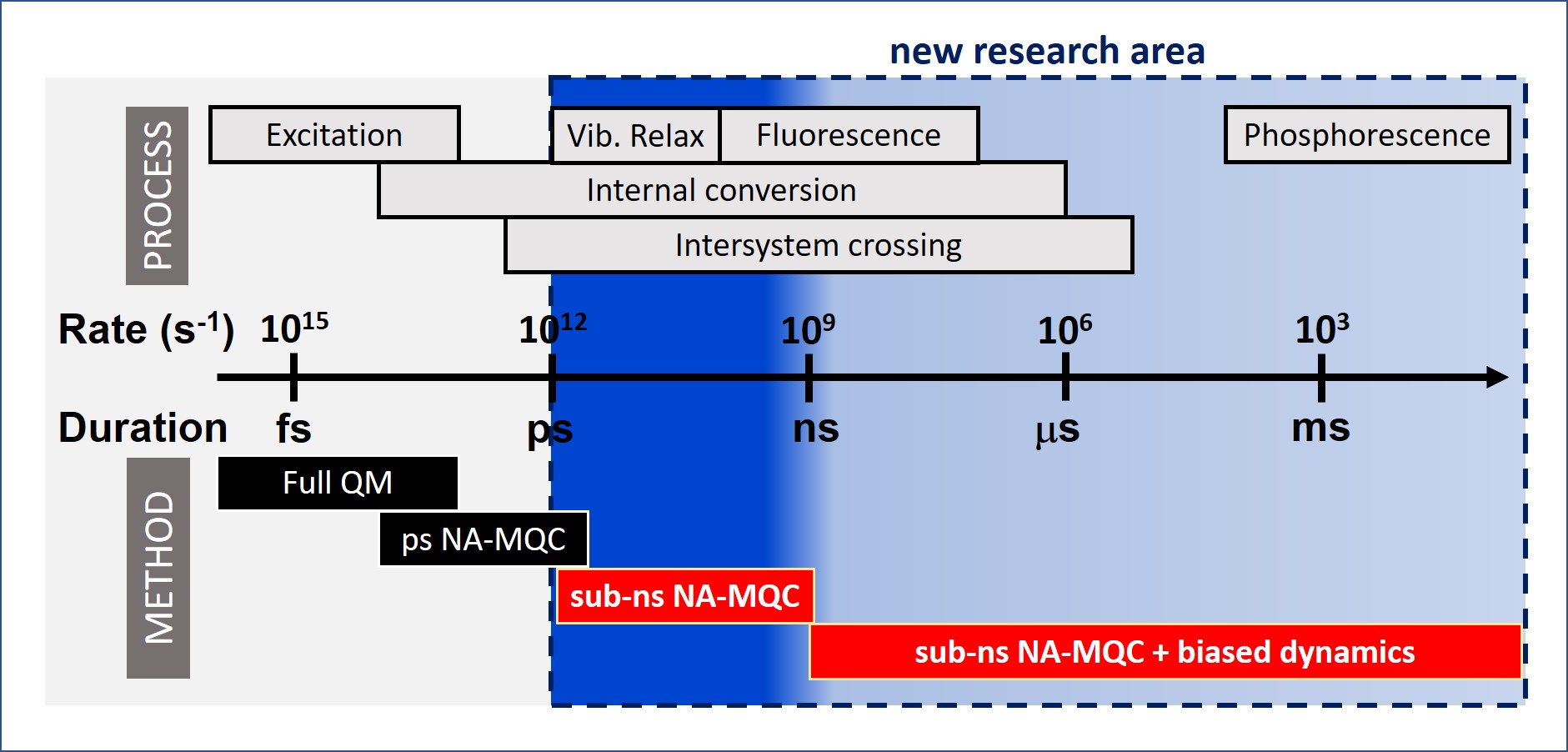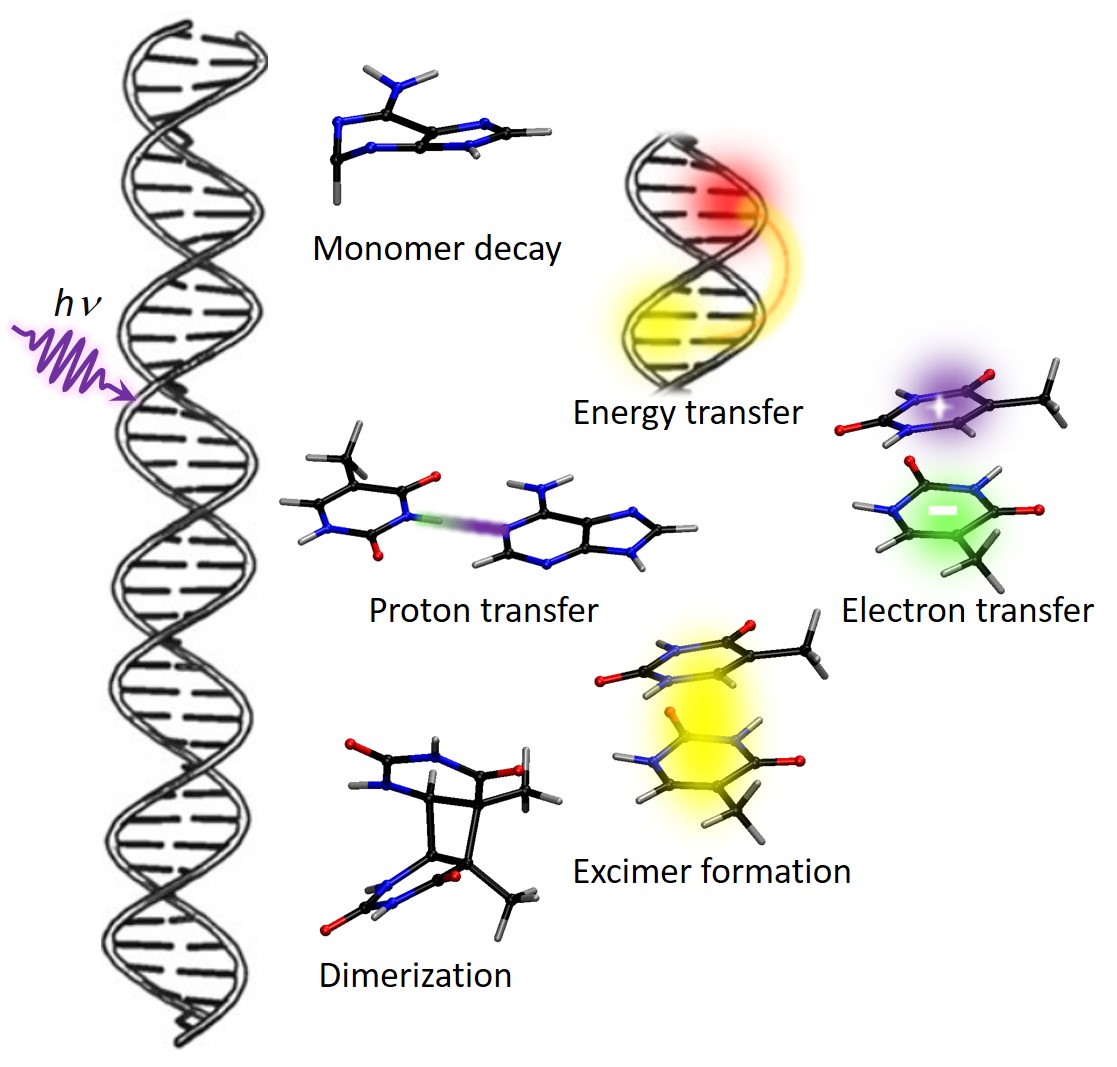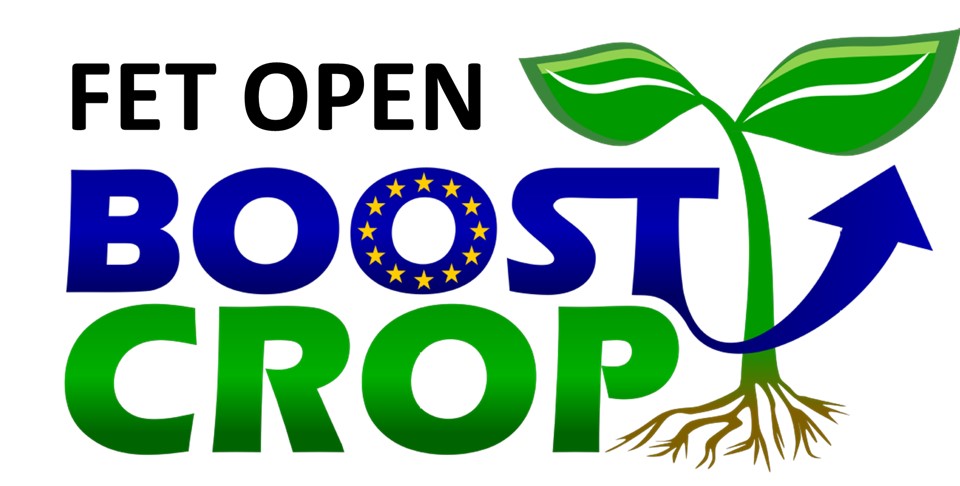I’ve been awarded an ERC AdG to develop methods for ns nonadiabatic dynamics.
In brief:
- Currently, dynamics simulation of UV-excited molecules is limited to the ultrafast scale (picosecond).
- SubNano is an ERC-funded project to develop methods to extend the simulation to the nanosecond scale.
- These new methods will be used to study photo-processes in nucleic acids.
I am excited to announce that I have been awarded an ERC advanced grant. This grant will fund the SubNano project for five years at the Institut de Chimie Radicalaire of the Aix Marseille University.
My goal in the SubNano project is to massively speed up the dynamics simulation of photoexcited molecules to address sub-nanosecond phenomena (that is, one thousand times above the current simulation limits).
Such methods will allow exploring phenomena, like vibrational relaxation, fluorescence, slow internal conversion, intersystem crossing, which have been left aside by computational chemistry, too focused on ultrafast processes.
The sub-ns methodology will be employed to investigate the long timescale nonadiabatic dynamics of photoinduced processes in nucleic acids, including DNA photostabilization via excitonic processes, biological fluorescent markers, and DNA pyrimidine-dimer repair.
To fulfill these goals, I will develop and implement a series of methods to extend nonadiabatic dynamics simulations into the new timescale, mainly based on a novel adaptive diabatic machine learning algorithm, and a novel zero-point-corrected and vibronically-corrected mixed quantum-classical method.
The sub-ns methodology will be implemented into Newton-X and made available for all academic community through new releases of the program.
The success of the SubNano project will have an enormous impact on the research field, allowing to investigate outstanding interdisciplinary phenomena in chemistry, biology, and technology, which have been neglected due to a lack of methods.
Soon, diverse postdoc, PhD, and IT engineer positions will be announced in the framework of SubNano, which will start in September 2019.
MB


